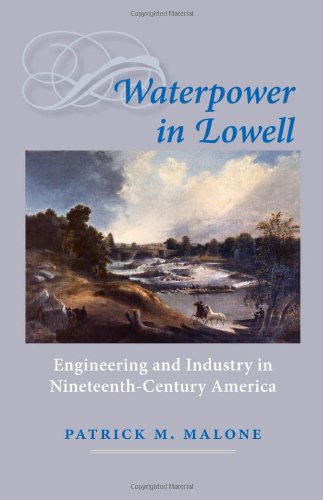

Most ebook files are in PDF format, so you can easily read them using various software such as Foxit Reader or directly on the Google Chrome browser.
Some ebook files are released by publishers in other formats such as .awz, .mobi, .epub, .fb2, etc. You may need to install specific software to read these formats on mobile/PC, such as Calibre.
Please read the tutorial at this link: https://ebookbell.com/faq
We offer FREE conversion to the popular formats you request; however, this may take some time. Therefore, right after payment, please email us, and we will try to provide the service as quickly as possible.
For some exceptional file formats or broken links (if any), please refrain from opening any disputes. Instead, email us first, and we will try to assist within a maximum of 6 hours.
EbookBell Team

0.0
0 reviewsPatrick M. Malone demonstrates how innovative engineering helped make Lowell, Massachusetts, a potent symbol of American industrial prowess in the 19th century.
Waterpower spurred the industrialization of the early United States and was the principal power for textile manufacturing until well after the Civil War. Industrial cities therefore grew alongside many of America's major waterways. Ideally located at Pawtucket Falls on the Merrimack River, Lowell was one such city -- a rural village rapidly transformed into a booming center for textile production and machine building. Malone explains how engineers created a complex canal and lock system in Lowell which harnessed the river and powered mills throughout the city.
James B. Francis, arguably the finest engineer in 19th-century America, played a key role in the history of Lowell's urban industrial development. An English immigrant who came to work for Lowell's Proprietors of Locks and Canals as a young man, Francis rose to become both the company's chief engineer and its managing executive. Linking Francis's life and career with the larger story of waterpower in Lowell, Malone offers the only complete history of the design, construction, and operation of the Lowell canal system.
Waterpower in Lowell informs broader understanding of urban industrial development, American scientific engineering, and the environmental impacts of technology. Its clear and instructional discussions of hydraulic technology and engineering principles make it a useful resource for a range of courses, including the history of technology, urban history, and American business history.
(2010)